-
|
14 April 2017
|Posteado en : Reportage
Pan American Day, a day intended for building closer relationships between the states of the Americas, has been celebrated since 1931.
Today, 14th April, twenty-one countries in the Americas celebrate Pan American Day, a day that reaffirms the unity of the continent.
The first time this day was celebrated was in 1931 to commemorate the founding of the Union of American Republics, later renamed the Pan American Union, which in 1984 became what we know today as the Organization of American States, or OAS.As stated in the Charter of the Organization of American States, the principles underlying this union are “to achieve an order of peace and justice, to promote their solidarity, to strengthen their collaboration, and to defend their sovereignty, their territorial integrity, and their independence”.
Following these same principles, FIIAPP manages a wide variety of projects in the region which, from different fields, contribute to promoting peace, justice and overall cooperation in the region.
For this reason, at FIIAPP we are joining the celebration by taking a tour of some of the projects we are managing in the region:
Cuba-EU Expertise Exchange
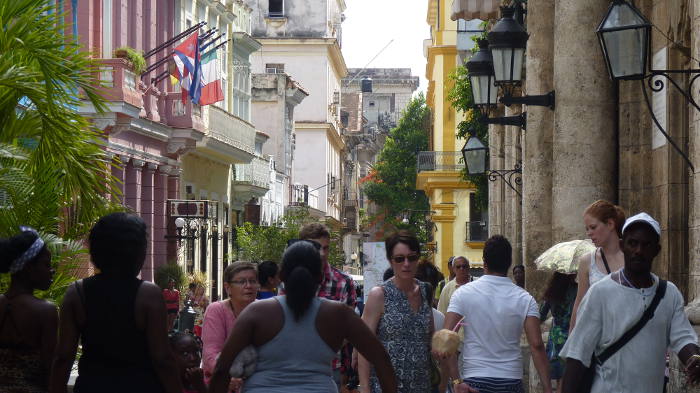
This is a project funded by the European Union that aims to accompany the Cuban government in its commitment to reforming its socio-economic policies. An example of this is the reform of the country’s tax administration, which the Director General of Economy and Planning of Cuba, Alfredo Jam Masso, explains is an extremely important activity. A website has already been created which allows taxpayers to manage their accounts, fill in forms and even close their accounts without having to visit a specific office. This reform has already been implemented all across the island.
Fight against drug trafficking in Bolivia and Peru
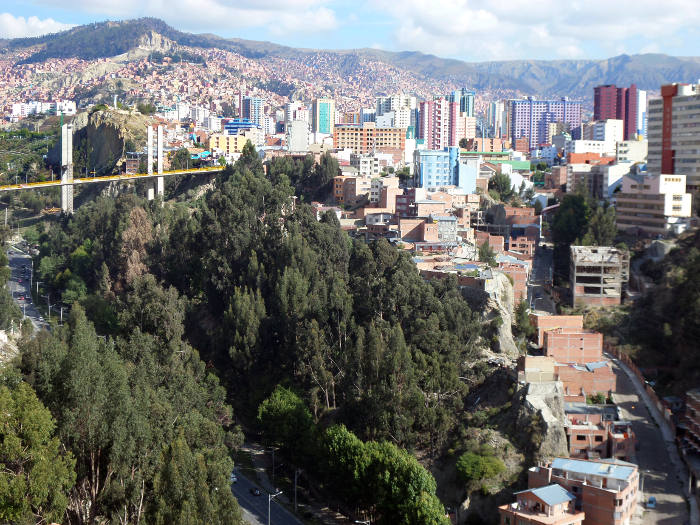
European experts have travelled to these two countries to carry out a series of trainings with the national institutions dedicated to fighting drug trafficking and organised crime. These experts come from France, Germany, the United Kingdom and Spain, and have different professional profiles: police officers, judges, prosecutors and customs agents.
Both Peru and Bolivia, the beneficiary countries, and Europe contribute their experience in this field, which is of interest to both parties, thereby improving the policies and techniques currently being applied in the fight against drug trafficking.
These trainings within the anti-drug trafficking project, in both Bolivia and Peru, are aimed at police officers at different levels explains Feliz Murga, the director of the organised crime unit of the National Police of Peru:
“Both cadets and active-duty officers have received courses related to the fight against drugs, intelligence and investigation of drug trafficking, and those already involved in the fight against organised crime have received specialised courses and courses abroad, in the European Union”.
COPOLAD
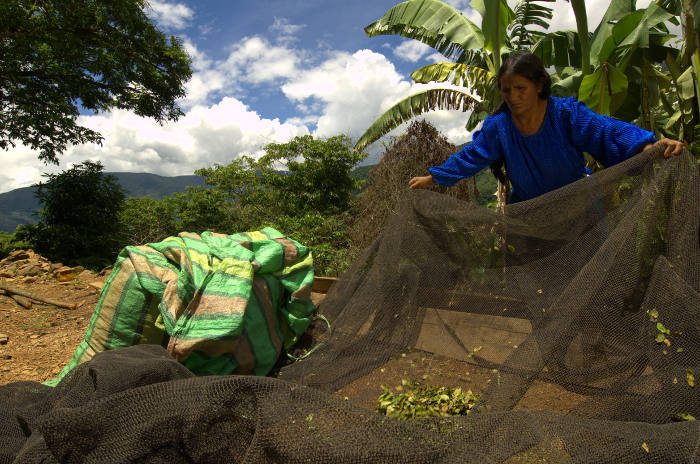
This is another drug-related international cooperation project, but with a different focus. COPOLAD, aspires to improve the bi-regional dialogue between Latin America and the European Union on drug policy.
This dialogue is centred on four components: consolidation of cooperation mechanisms, creation of national drug observatories, implementation of measures for drug demand reduction, and trainings for experts on drug supply reduction.
COPOLAD director Teresa Salvador summarises the work in the project: “these are institutional strengthening activities intended to help the national drug observatories obtain reliable, high quality data and use them to assess the impact of measures being taken to address this problem”.Other regional programmes
In addition to these, FIIAPP manages many other projects that operate at regional level: EUROCLIMA+, a programme focused on the adaptation to and mitigation of climate change; EUROsociAL+, a programme for social cohesion in Latin America; AMERIPOL, centred on improving the capacities of prosecutors and law enforcement and judicial authorities in the fight against organised crime.
-
|
07 April 2017
|Posteado en : Reportage
Since 2015, FIIAPP has managed the project to support the Tunisian Ministry of Justice in the democratic transition process.
Port of France, TunisiaIn December 2010, in the centre of the Tunisian capital, a pivotal moment in the country’s recent history occurred. Near the city’s main square, Mohamed Bouazizi, a 26-year old street vendor of fruits and vegetables, was stopped by three municipal police officers and asked to pay a bribe whilst he was selling his goods. Mohamed refused and the police confiscated his produce and cart. That same afternoon he went to the governor’s office to demand that his property be returned but received no reply. So he decided to buy a can of gasoline and some matches and then lit himself on fire inside the municipal government headquarters.
Mohamed’s flames ignited the tensions of the Tunisian people, and the square filled with shouts of hope. Thousands of citizens took to the streets to demand the rights they had been denied under the regime of Ben Ali. After several weeks of citizen demonstrations, the party was dissolved.
Since then, Tunisia has been undergoing a democratic transition. In 2014 the constitution was ratified and the first free and democratic elections were held, in which Habib Essid of the Nida Tunes party was named prime minister.
European project to support the ministry of justice
The European Union applauded the advances of the Tunisian democratic transition and made a commitment to provide support throughout the process. One example of this commitment is the project to support the Tunisian Ministry of Justice, which began in 2015, is being funded through the European Neighbourhood Instrument and managed by the International and Ibero-American Foundation for Administration and Public Policies (FIIAPP).
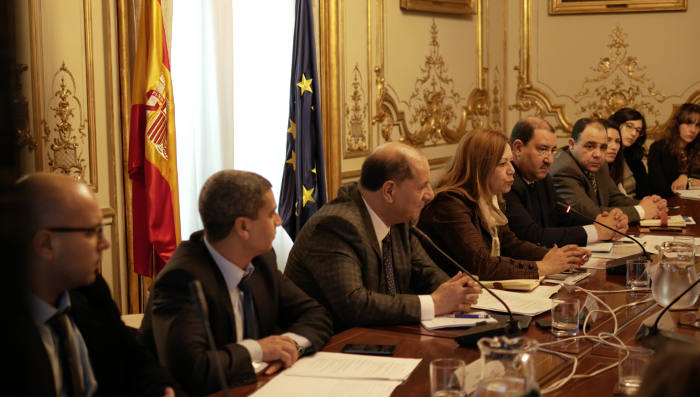
The aim of this project is to support the Tunisian judicial system in the democratic transition process and to define the structure of the Ministry of Justice and the General Council of the Judiciary. The resident project manager in Tunisia, Ángel Llorente, describes the situation at the start of the project, “passing from an autocratic regime to a democratic system with liberties, it was necessary to change the most important laws because, in the Ministry of Justice, a series of competences previously converged that should be exercised by an independent judiciary empowered with autonomy and its own budget”.
Currently the project is at its mid-point. A first phase has already been completed involving a study to learn the prior situation and thereby identify the needs on which to base the design of future implementation of public policies. An advocate in the superior court of justice of Murcia and the project leader, Javier Parra, explained that one of the tangible achievements to date is the preparation of a five-year plan for the insertion of information technologies.
But the results of the project are not just relevant during the two and half years of its execution; it is hoped that these steps taken will be the motor of a much deeper change in the structure of Tunisian judicial bodies. One example of this is the five-year programme of objectives to be achieved in the next five years. The advisor to the Tunisian Ministry of Justice and head of the mission, Najet Ben Salah, explains that “we are committed to getting results; we have objectives that are already included in an overall action plan, and we hope that these results can be achieved in the next five years”.
-
|
17 March 2017
|Posteado en : Reportage
We get to know one of the pillars of FIIAPP's work, the legal department.
Sofía Herranz, Head of the Legal Department of FIIAPP.The International and Ibero-American Foundation for Administration and Public Policies (FIIAPP) is a public-sector foundation governed by private law which manages Spanish public funds and those of the European Union. As such, it follows in-house legal instructions drawn up by the foundation itself. Consequently, the work of a legal department, which maintains strict supervision and control over any legal aspects that arise in the foundation’s daily work, is essential.
We talk to Sofía Herranz, the head of FIIAPP’s legal department since 1998 and one of its longest serving employees.
The legal department is one of the most cross-cutting areas of FIIAPP; that means that it works jointly and in coordination with all the other departments of the institution, or as Sofía puts it: “The relationship is direct and ongoing. We don’t all know everything, but between all of us we know a lot”.
The main job of the department is to “counsel the area directors and the project managers and officers when it comes to creating project technical sheets and talking to partners” in order to ensure the complete legality of the procedures.
Another task of the department is to manage all types of non-employment contracts, such as those related to procurement of services, supplies and technical assistance and the engagement of experts. As Sofia tells us, this is one of the aspects that generates the greatest number of questions: “how do I hire an expert; what is the procedure; what is the difference between an expert who is a civil servant and one who is a professional”.
FIIAPP, as it manages sizeable projects, often finds itself in the situation of having to sign very large-scale agreements and contracts that require certain very specific administrative, technical and legal conditions which must be completely in order.
As we explained earlier, FIIAPP has a particular status that differentiates it from other foundations: the funding is all public. Accordingly, Sofia confesses that “managing public funds is a very significant responsibility, so we have to be meticulous and exemplary”.
As Sofia tells us, another peculiarity of FIIAPP is that “it is governed by private law but belongs to the public sector, and so the foundation is subject to the oversight of various supervisory bodies, such as the General Intervention Board of the State Administration, the Court of Auditors, and to private audits that verify its processes and execution of the public funds being managed”.
Considering that the FIIAPP board is made up of members of the government, its support and institutional vision are present in the foundation’s daily work and in fulfilment of our legal obligations with respect to both the funds from the General State Budgets and the European Commission.
-
|
30 January 2017
|Posteado en : Reportage
Eradicating poverty and hunger in the world, ending inequality and forming partnerships between countries for the common good are some of the goals established for a sustainable future.
In 2015, at the UN Sustainable Development Summit held in New York, 193 countries approved the agenda of goals for 2030. These new goals are the Sustainable Development Goals (SDG). The United Nations defines sustainable development as “development that meets the needs of the present without compromising the ability of future generations to meet their own needs”.
These goals are broader in scope than the eight Millennium Development Goals (MDG), signed in 2000, and involve more actors committed to eradicating poverty and fighting climate change.
On this occasion, the agenda calls for 17 goals to be achieved by 2030, including eradication of poverty and hunger in the world; elimination of gender disparity; caring for the planet as our only home by protecting the environment, biodiversity and combating climate change; and ensuring access to basic services like health care and education. A goal was also set that contemplates the creation of networks and partnerships between countries to work jointly to achieve the other goals.
EU commitment to the SDGs
The European Union has made a commitment to adopting the sustainable development goals and implementing them in Community legislation, prioritising its activities to address the three fundamental development pillars: economic, social and environmental.
It has also established, as one of the steps to be taken to achieve the 2030 agenda, the goal of creating a space for reflection on development with a longer-term perspective. Along these lines, it is also seeking to make the policies implemented in the European Union applicable beyond European borders by supporting third countries in the consolidation of peaceful, stable and resilient states.
The European Commissioner for International Cooperation and Development, Neven Mimica, expresses his commitment to achievement of the SDGs as follows: “I aim for a genuine consensus, under the shared ownership of EU Institutions and all Member States that will help us spearhead global action to implement the Sustainable Development Goals.”
FIIAPP in the 2030 Agenda
The International and Ibero-American Foundation for Administration and Public Policies (FIIAPP), as a public agency that manages international cooperation projects, works in accordance with the lines of action of European foreign policy.
Its work focuses on modernisation of the public institutions of the countries it works in through different areas. It has a direct relationship with the SDGs in the following ways:
– Social policies and rights: In this area, FIIAPP manages projects that contribute to the promotion and protection of basic social services like health care, education and employment. Here we find EUROsociAL, a programme to support social cohesion in Latin America through the exchange of experiences between experts on different subjects, such as justice, governance and public finance. This project contributes to the achievement of goal 16, “Promote peaceful and inclusive societies for sustainable development, provide access to justice for all and build effective, accountable and inclusive institutions at all levels”, and 17, “Strengthen the means of implementation and revitalize the global partnership for sustainable development”.
– Economy and public finance: In this area, FIIAPP implements projects to support countries in building sounder tax systems that will enable them to increase their national revenue, thereby strengthening the government. This is the objective of the Public Finance Modernization in Algeria project. These projects contribute to achievement of goal 17.1, “Strengthen domestic resource mobilization, including through international support to developing countries to improve domestic capacity for tax and other revenue collection”.
– Development and communication policies: In this area, FIIAPP focuses on supporting the governments of the countries where it works to improve the infrastructure, transport and construction sectors. Here we find the project FIIAPP is working on to support the railway system in Ukraine, which in its second phase aims to improve Ukraine’s rail transport system and adapt it to European regulations and standards. This project supports progress towards goal 11.2, “Provide access to safe, affordable, accessible and sustainable transport systems for all, improving road safety”.
– Green economy: The projects managed by FIIAPP in this area are governed by, among other regulations, the regulatory framework of the EU on climate and energy for 2030. This sector includes the Euroclima project to support climate change mitigation and adaptation policies designed to protect the environment in Latin America. This project is consistent with goal 13, “Take urgent action to combat climate change and its impacts”.
– Security and the fight against organised crime: In this aspect, FIIAPP works on projects to fight illegal immigration, human trafficking and drug trafficking. One example of this is the project to support drug legislation in Bolivia, in which Spanish security experts on drug issues work to train their Bolivian counterparts. The institutional support, in this sense, helps to achieve goal 16.4, “Significantly reduce illicit financial and arms flows, strengthen recovery and return of stolen assets, and combat all forms of organized crime”, and 16.11, “Strengthen relevant national institutions, including through international cooperation, for building capacity at all levels, in particular in developing countries, to prevent violence and combat terrorism and crime”.
– Justice and transparency: In this area, the projects managed by FIIAPP are focussed on fighting corruption and promoting transparency. Here we find the EUROMED Justice project, which aims to contribute to the development of an effective, efficient and democratic judicial system in the Euro-Mediterranean zone that will protect and respect human rights through regional cooperation (cooperation in which various countries in a region participate) in the areas of crime and access to justice. This project is consistent with goal 16, specifically with point 3, “Promote the rule of law at the national and international levels and ensure equal access to justice for all”.
-
|
16 December 2016
|Posteado en : Reportage
The fifth edition of the Ibero-American Design Biennial highlights the work of design intended for people.
On the left, Isabel Ramos, Director of Information and Special Programmes at FIIAPP; on the right Tiago Dias, the designer of the Bienestar Familia project.We can understand creativity as the ability to create, to provide solutions to problems. This problem-solving ability that affects the daily life of people is the reason for being of international cooperation and for development.
Today there are numerous forms of cooperation between countries: financial cooperation, technical cooperation, triangular cooperation, South-South cooperation, and cultural cooperation. These are different modes of support and collaboration between countries.
Another form of this cooperation between countries is cultural cooperation. For example, through design. A type of design aimed not at the designed object itself but at the people, a type of design focussed on its intended beneficiaries.
This objective was behind the organisation of the Ibero-American Design Biennial (BID) in 2007; the year when 24 designers from 14 Latin American countries signed the Madrid Declaration and decided to join together to constitute the BID advisory committee.
Since then, this design exhibition has been held every two years. It is organised by the Madrid Design Foundation, with which the Spanish Ministry of Foreign Affairs collaborates through Spanish Cooperation , along with the Spanish Agency for International Development Cooperation (AECID) and FIIAPP, as part of the ACERCA project.
Fifth Ibero-American Design Biennial
From 21st November to 29th January, the fifth edition of the BID exhibition can be visited, where more than 1,000 designers from Ibero-America, Spain and Portugal are presenting 470 design proposals..
Spanish Cooperation and the International and Ibero-American Foundation for Administration and Public Policies (FIIAPP) highlighted the work of the projects presented by awarding four honourable mentions and one prize in the category of design for development. In the words of the head of the Cooperation and Cultural Promotion Department of the AECID’s Directorate of Cultural and Scientific Relations, Jorge Peralta, “the qualities of the awarded works are the contribution to a safer, more accessible and more creative world, breaking with the elitist role of design and demonstrating that design understood as a tool for development is also viable”.
Tiago Dias, a designer and one of the creators of the awarded project Bienestar Familia (Family Well-being), explains that their work tries to “provide underprivileged families in the peripheries of the Caldas region in Colombia with access to primary healthcare.” An objective that it meets through the design of health insurance adapted to the living conditions and spending capacity of the beneficiaries.
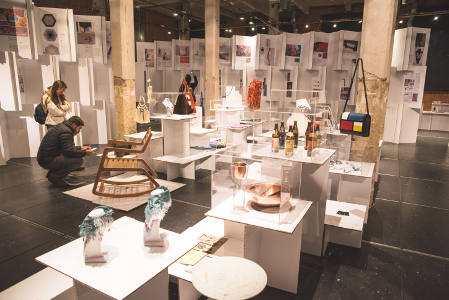
The other projects selected in the category of design for development offer design solutions in diverse ways. Such as an emergency housing solution for refugees fleeing armed conflicts or natural disasters; irregularly shaped bricks that insulate against heat; a low-cost incubator; and retrofitting solutions for houses to insulate against the cold in the Andean highlands.
This project, which gets bigger each year, brings together leading Ibero-American designers who, from different perspectives, contribute new ways of transforming the world.
The International and Ibero-American Foundation for Administration and Public Policies (FIIAPP) collaborates with the Biennial through the ACERCA Programme, by AECID, whose objective is to promote culture as an engine of development.
Further information here
-
|
09 December 2016
|Posteado en : Reportage
Observance of Human Rights Day.
Human Rights Day is observed all over the world on 10th December. A celebration that commemorates the date on which the United Nations General Assembly approved the Universal Declaration of Human Rights in 1948.
To join in this celebration, we spoke with Virgínia Brás Gomes, a member of the United Nations Committee on Economic, Social and Cultural Rights and an expert working with the International and Ibero-American Foundation for Administration and Public Policies (FIIAPP) in a project in Morocco to strengthen human rights in the country. Her work dealt specifically with the right to work and just and favourable working conditions.
We spoke with her about the relationship between the United Nations Committee on Economic, Social and Cultural Rights and development cooperation. To fight for these rights, the population and the institutions, states and organisations work to develop both public policies and cooperation projects.
According to Virginia, “the Committee as such has no direct relationship with development cooperation”.
Nonetheless, the covenant on economic, social and cultural rights signed on 16th December 1966, in Virginia’s words, “speaks clearly about the international technical and financial cooperation that the most developed countries have the obligation to provide to support the least developed countries. Therefore, for the committee it is important to reaffirm this obligation of the developed nations to human rights. It is in the dialogues for monitoring the covenant that the committee reaffirms this obligation. We all know that without development, human rights do not exist”.
Virginia asserts that “human rights, particularly economic, social and cultural rights, absolutely require development in relation to economic and financial resources and the stability of the country. This is very important. We always talk about the cooperation of the most developed countries; we also say and recommend to countries that if the national resources are insufficient, it is possible to work through international cooperation, which is not cooperation as a handout but rather necessary cooperation”.
Listen to our special segment on Human Rights Day on our programme Public Cooperation in the World on Radio 5, of Spanish National Radio (RNE).







